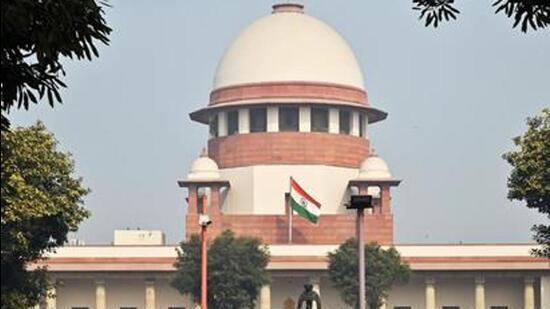
Calling someone ‘Miyan-Tiyan’ & ‘Pakistani’ not an offence: Supreme Court
In a recent ruling, the Supreme Court of India has clarified that calling someone “Miyan-Tiyan” and “Pakistani” may be considered in poor taste, but it does not constitute a criminal offence. The court’s decision comes in the wake of a case filed against an 80-year-old man in Jharkhand, who was accused of hurling abuses at an Urdu translator.
The case took a surprising turn when the Supreme Court closed the case, stating that the remarks made by the 80-year-old man did not amount to hurting the religious sentiments of the translator. The ruling has sparked a heated debate, with many questioning the court’s decision and others welcoming the clarification.
The incident that led to the case began when an Urdu translator was working on a project in Jharkhand. During his work, he allegedly had a disagreement with the 80-year-old man, who is a local resident. The translator claimed that the man hurled abuses at him, including calling him “Miyan-Tiyan” and “Pakistani”. The translator then filed a complaint against the man, alleging that his remarks were intended to humiliate and insult him.
The case was taken up by the court, and the 80-year-old man was charged with making derogatory remarks and causing hurt to the translator’s religious sentiments. However, during the trial, the court heard evidence from both parties and concluded that the remarks made by the man did not amount to hurting the translator’s religious sentiments.
In its ruling, the Supreme Court stated that while the remarks made by the 80-year-old man may have been in poor taste, they did not constitute a criminal offence. The court also took into account the context of the incident, noting that the man’s remarks were likely made in the heat of the moment and did not intend to cause harm to the translator’s religious sentiments.
The court’s decision has been met with mixed reactions from the public. Some have welcomed the ruling, arguing that it sets a precedent for freedom of speech and prevents frivolous complaints from being filed. Others have criticized the decision, arguing that the remarks made by the 80-year-old man were intended to cause harm and that the court should have taken a stronger stance.
The controversy surrounding the case has also brought to light the sensitive nature of language and the importance of context in interpreting the impact of words. Many have pointed out that the terms “Miyan-Tiyan” and “Pakistani” are often used in a derogatory manner, particularly in India where there is a history of communal tensions and religious divides.
In the wake of the case, experts have also highlighted the need for greater education and awareness about the impact of language on individuals and communities. Many have argued that the court’s decision should serve as a wake-up call for individuals to be more mindful of the language they use and to avoid using words that can cause harm and offense.
In conclusion, the Supreme Court’s ruling in this case is a complex one that highlights the challenges of balancing freedom of speech with the need to protect individuals from harm and offense. While the court’s decision may have been met with controversy, it serves as a reminder of the importance of context and nuance in interpreting the impact of words.
Ultimately, the case serves as a call to action for individuals to be more mindful of the language they use and to avoid using words that can cause harm and offense. By doing so, we can create a more tolerant and inclusive society where individuals can express themselves freely without fear of persecution or harm.
Source:






